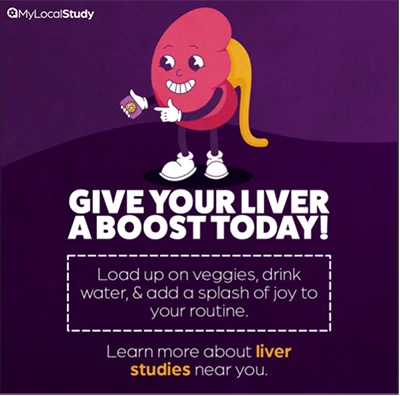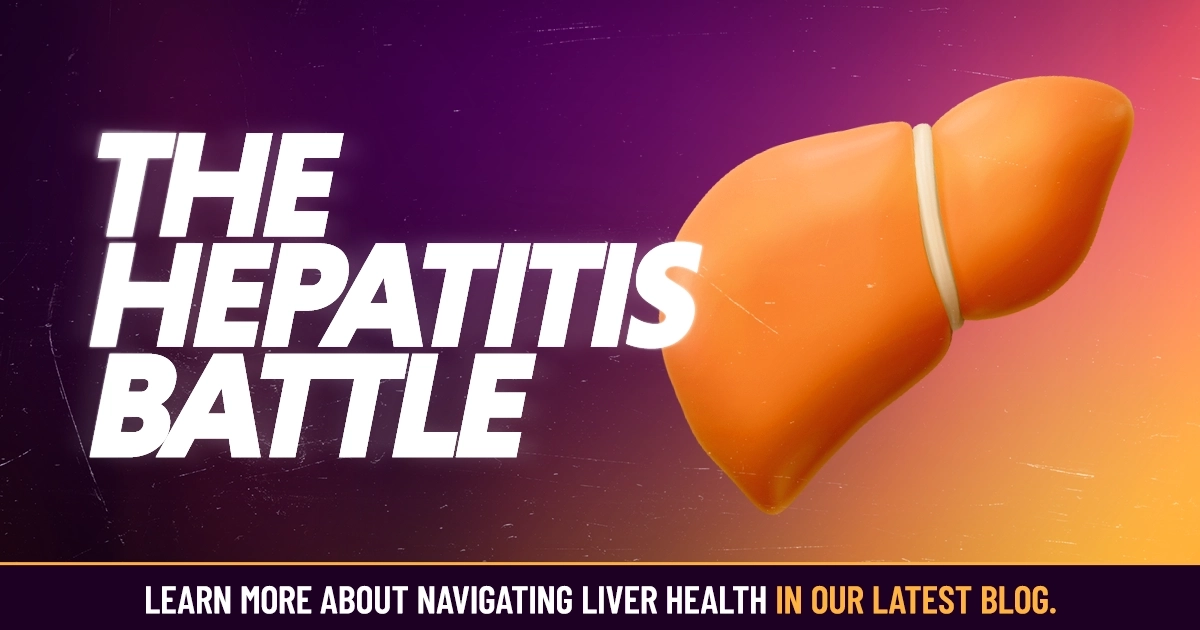July 28th is World Hepatitis Day, a day dedicated to raising awareness about viral hepatitis and encouraging prevention, diagnosis, and treatment. Hepatitis is a term that often brings a sense of unease, but understanding it is the first step towards empowerment and proactive health management. At its core, hepatitis is an inflammation of the liver, a vital organ responsible for numerous essential functions such as detoxifying the blood, storing vitamins and minerals, and producing bile for digestion. Read more below to learn about what hepatitis entails, its symptoms, and how you can take charge of your liver health.

What is Hepatitis?
Hepatitis can be caused by various factors, including viral infections, alcohol consumption, toxins, medications, and certain medical conditions. There are several types of viral hepatitis, with the most common being Hepatitis A, B, and C. Each type is distinct in its transmission methods and long-term effects on the liver.
- Hepatitis A is usually spread through consuming contaminated food or water. It’s often acute and doesn’t lead to chronic infection.
- Hepatitis B can be transmitted through bodily fluids, including blood, and can become a chronic condition, potentially leading to serious liver issues.
- Hepatitis C is primarily spread through blood-to-blood contact. It often progresses to a chronic state, posing a significant risk for liver cirrhosis or liver cancer.
Recognizing the Symptoms
The symptoms of hepatitis can vary widely and may even be absent in some cases, especially in the early stages. Common signs include:
- Jaundice: A yellowing of the skin and eyes.
- Fatigue: Persistent tiredness and lack of energy.
- Abdominal Pain: Discomfort or pain, especially in the upper right side of the abdomen.
- Loss of Appetite: A decrease in desire to eat.
- Nausea and Vomiting: Frequent feelings of sickness and the urge to vomit.
- Dark Urine: A noticeable change in urine color to dark brown.
These symptoms can often be mistaken for other illnesses, making it crucial to seek medical advice if you experience any combination of these signs.
The Importance of Liver Health
Your liver plays a pivotal role in your overall health. It’s responsible for filtering toxins from your blood, aiding digestion through bile production, storing essential nutrients, and regulating blood clotting. When the liver is inflamed or damaged, these critical functions can be compromised, leading to severe health consequences.
To maintain liver health, consider adopting lifestyle changes such as a balanced diet rich in fruits and vegetables, regular exercise, avoiding excessive alcohol consumption, and getting vaccinated for Hepatitis A and B.

Taking the Next Step with MyLocalStudy
At MyLocalStudy, we are committed to supporting liver health through research and clinical studies. Participating in a liver health study not only contributes to advancing medical knowledge but also offers you an opportunity to receive expert care and monitoring. Explore enrolling liver health studies at MyLocalStudy and take a proactive step towards better liver health.
Your journey towards understanding hepatitis and maintaining a healthy liver starts here!

